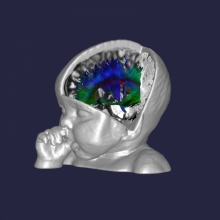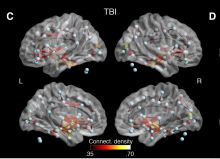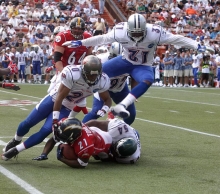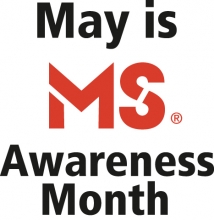Abnormalities shown to first appear in brain networks involved in sensory processing
The origins of autism remain mysterious. What areas of the brain are involved, and when do the first signs appear? New findings published in Biological Psychiatry brings us closer to understanding the pathology of autism, and the point at which it begins to take shape in the human brain. Such knowledge will allow earlier interventions in the future and better outcomes for autistic children.















